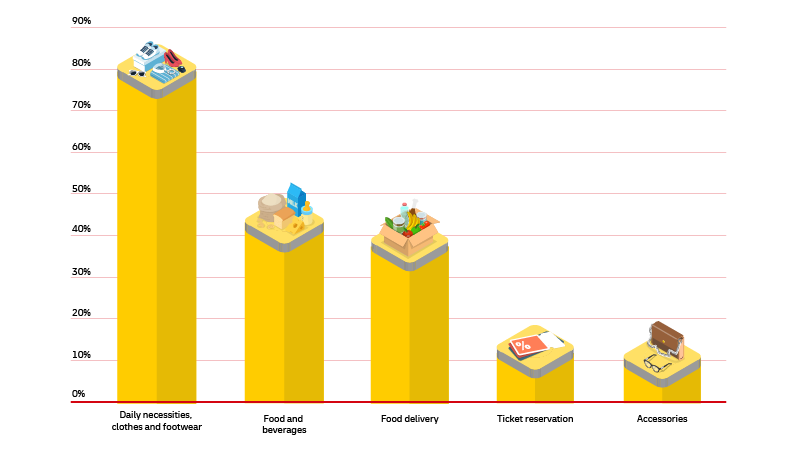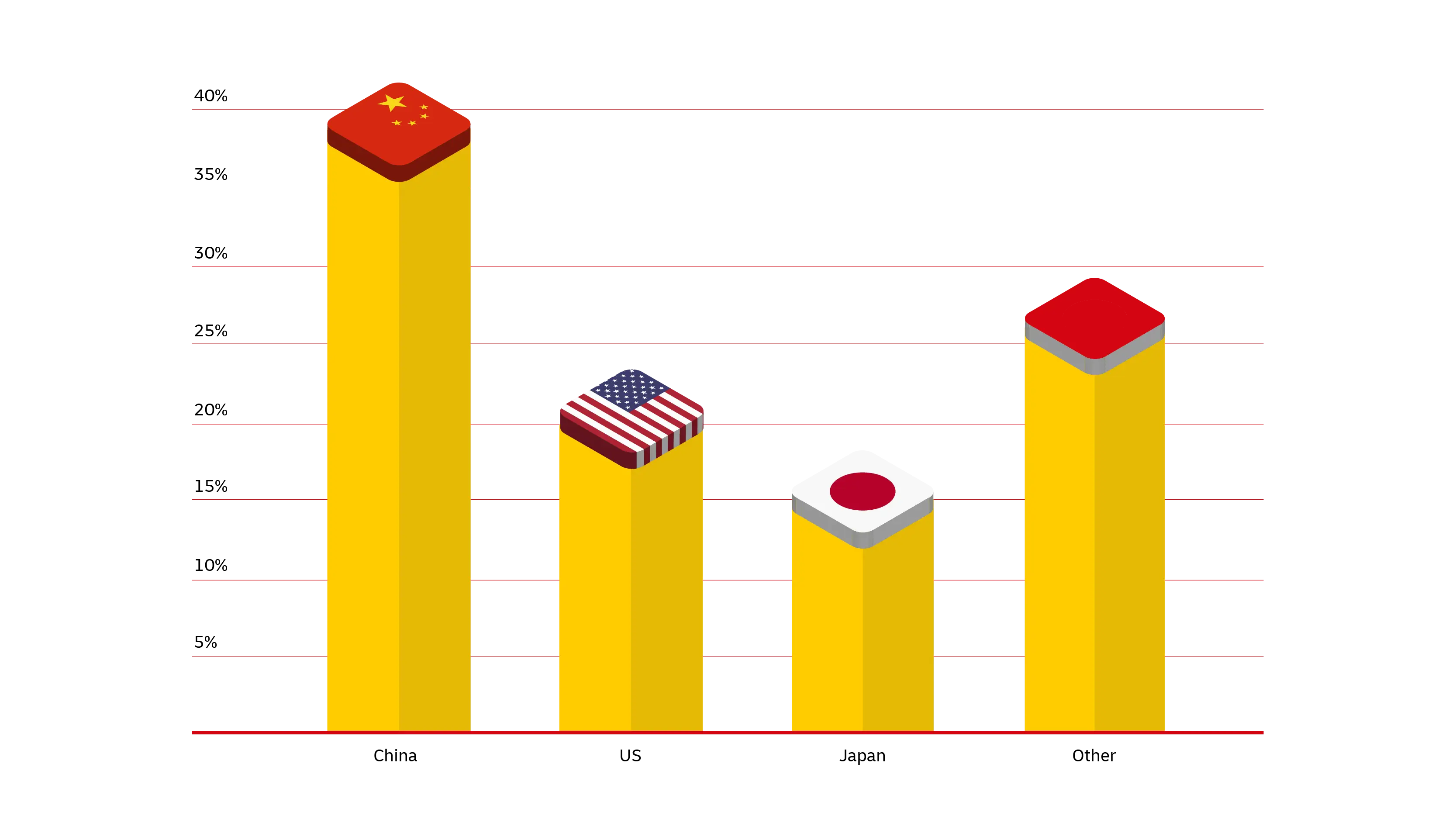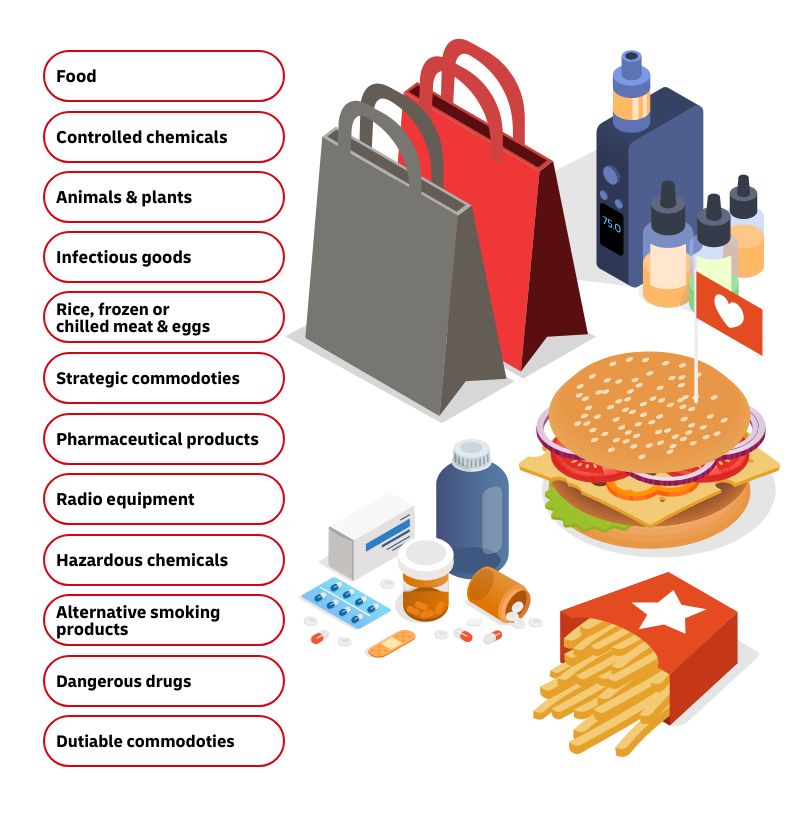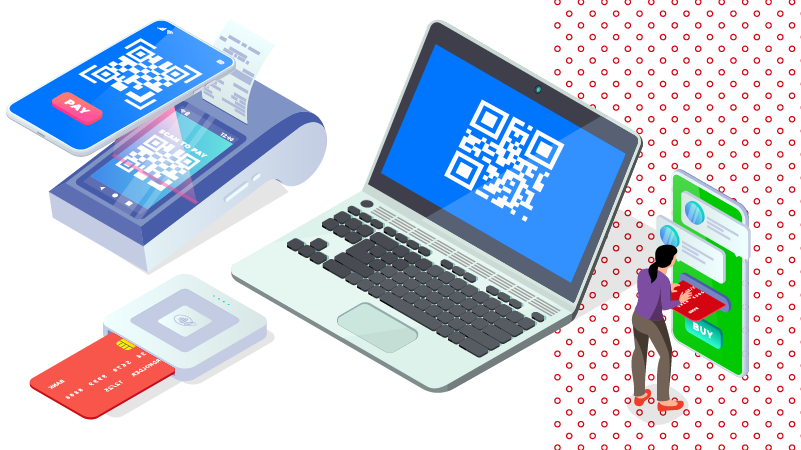The city of Hong Kong is known for its mature and rapidly growing e-commerce market. With its free port status and easy customs clearance process, it offers a favorable environment for businesses to thrive. Understanding e-commerce growth, market trends, and consumer buying habits is essential for successfully tapping into this market.
By leveraging these insights, you can navigate the import process and position your business for success in Hong Kong.
E-commerce opportunities and advantages
Hong Kong's e-commerce market offers great opportunities for businesses. The convenience of pricing and supply chain attracts customers, and with reliable delivery solutions like DHL, e-commerce players can enjoy hassle-free shipping. Door-to-door delivery provides convenience to end customers, and e-commerce businesses can sell their goods to Hong Kong just like domestic businesses. Hong Kong's strong domestic consumption and retail sales growth make it an excellent e-commerce market.

8.93% e-commerce growth
Hong Kong’s already mature e-commerce market and total revenue is set to continue growing between 2023 and 2028 (8.93% CAGR).[1]
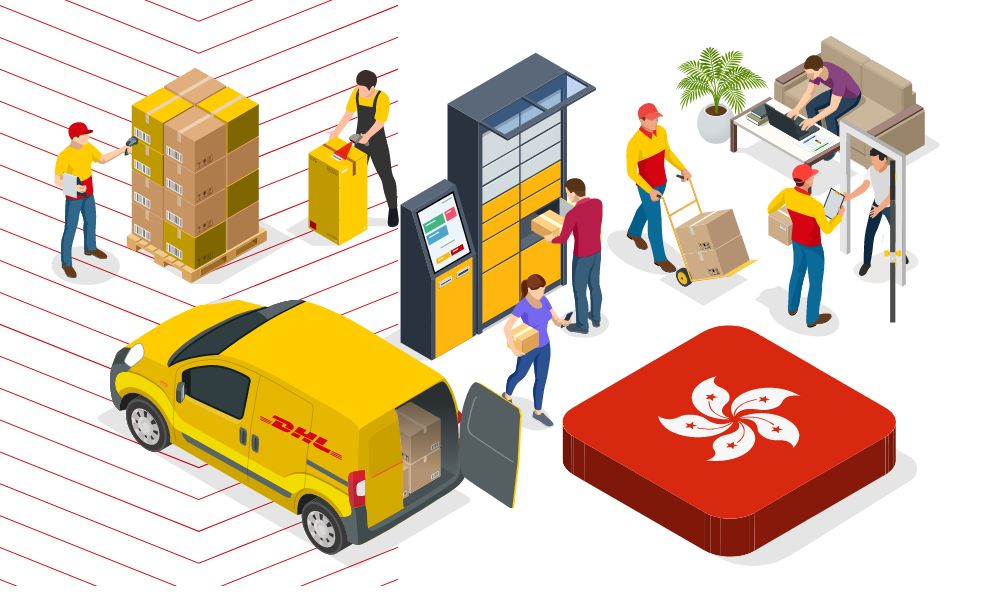
8.2% of total retail spend (January 2023)
An untapped opportunity or a slow-growth market? Hong Kong lags behind similarly wealthy economies when it comes to e-commerce as a share of total retail sales. Only around 8-12% of its retail spend is online[2]. Compare this to the world’s leading e-commerce markets - China, 47%; Indonesia, 31.9%; and the UK, 30.6%[3].

ARPU of USD$1,381
Hong Kong's average revenue per e-commerce user (ARPU) is expected to be USD$1,381 in 2024[4].
Customer habits

61% will pay more for sustainability
Considering selling more eco-friendly products? Hong Kong could be a receptive market—as 61% of shoppers will pay more for sustainable products [5].

Mobile comes first
57% of online transactions in Hong Kong in 2021 took place on mobile[6]. The market is set to grow further, driven largely by app-based social commerce, which is particularly popular with younger consumers[7].
What do shoppers in Hong Kong buy online?
Leading product categories amongst consumers (as of September 2022)8
Where do Hong Kong consumers shop online?
Online marketplaces can be a helpful gateway for cross-border businesses wishing to sell to a new country for the first time.
Leading marketplaces in Hong Kong, as of October 20239
Which countries do e-commerce users in Hong Kong buy from the most?
Around 25% of Hong Kong’s e-commerce transactions are cross-border, likely due to the island’s relatively small size. Mainland China is the most popular shopping destination (taking 37% of the market share), followed by the US (21%), and Japan (16%)10.
Shopping holidays and cultural trends
Hong Kong has a unique cultural blend of Chinese and Western influences, and festivals like Chinese New Year, Mid-Autumn Festival, and Christmas Eve are widely celebrated. E-commerce players can leverage these cultural trends and online shopping events like Double 11 (Singles' Day) and Black Friday to promote their products.
Import controlled commodities
Certain commodities in Hong Kong are subject to import controls, and importers must provide corresponding import permits for customs clearance. These controlled commodities include animals and plants, controlled chemicals, dangerous drugs, dutiable commodities, food, infectious goods, pharmaceutical products and medicine, radio transmitting equipment, strategic commodities, hazardous chemicals, and alternative smoking products. It is crucial to obtain the required import permits in advance to ensure smooth clearance.
Import regulations and customs clearance
Hong Kong has relatively simple import regulations, with only four types of dutiable commodities requiring import duty:
- Tobacco
- Hydrocarbon oil
- Methyl alcohol
- Alcoholic drinks with a strength of 30% or more
Some commodities, such as medicine, rice, and egg products, require an import permit before shipment arrival. It is essential to familiarize yourself with the import regulations and secure the necessary permits for smooth customs clearance. Regulated items include:
More information can be found at:
Hong Kong Customs and Excise Department - Controlled Imports
Official Trade advice
In Hong Kong, customs clearance does not require a broker service. Typically, the forwarder or carrier, such as DHL, handles the import customs clearance on behalf of the customer.
However, importers and exporters need to lodge a trade declaration within 14 days of importation or exportation. The Census and Statistics Department provides detailed information on import/export declarations and their completion and lodgment processes.
DHL's insider tips for exporting to Hong Kong
Tips for successful e-commerce in Hong Kong
In this section, DHL's expert on Hong Kong exports and shipping provides you with the insight and advice you to sell in this key market.
- Compared to other countries, Hong Kong offers easy customs clearance for general goods. However, restricted goods like drugs, food, telecommunications equipment/strategic commodities and livestock require special attention. It is important to note that Hong Kong does not use postal codes, relying on the accuracy of the address input from end customers. To ensure seamless delivery, DHL and other logistics providers may clarify the delivery address with the consignee to avoid any ambiguity.
- You can find the correct HS code for your shipment easily via DHL’s MyGTS (My Global Trade Services) – a free, user-friendly platform that will help you navigate all aspects of international shipping. This includes calculation of Landed Cost for goods in any country – i.e. your product cost, duties & taxes, and freight charges – enabling you to enhance your pricing strategy and give your customers transparency over shipping fees.
Online consumer preferences and payment methods
Hong Kong consumers have embraced digital channels for buying luxury goods, clothing, accessories, electronics, and lifestyle products. Many retailers in the Hong Kong market operate both online and offline to attract customers and enhance the shopping experience. Credit card payment is widely accepted, with rewards linked to credit card use, such as cashback and air miles programs. Digital wallets like AliPay, WeChat Pay, Tap & Go, and Octopus are also popular payment methods.
Delivery preferences
Door-to-door delivery is the preferred method in Hong Kong, followed by options like leaving the package with a neighbor or collecting it from a service point or locker. Businesses should consider these preferences and ensure reliable and convenient delivery options for their customers.


